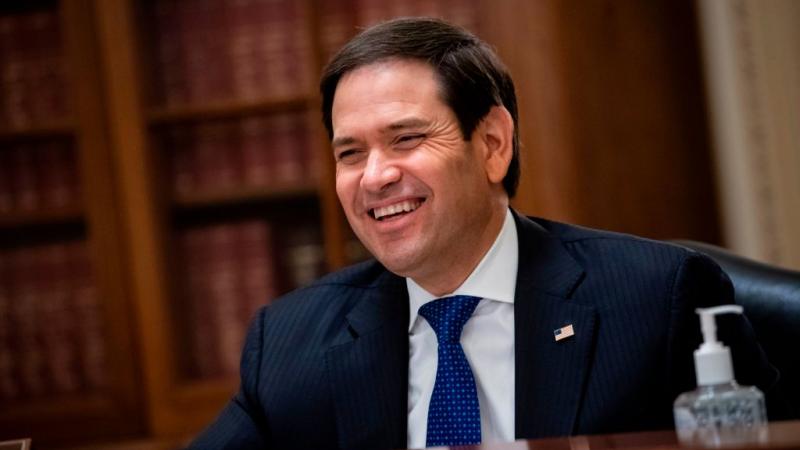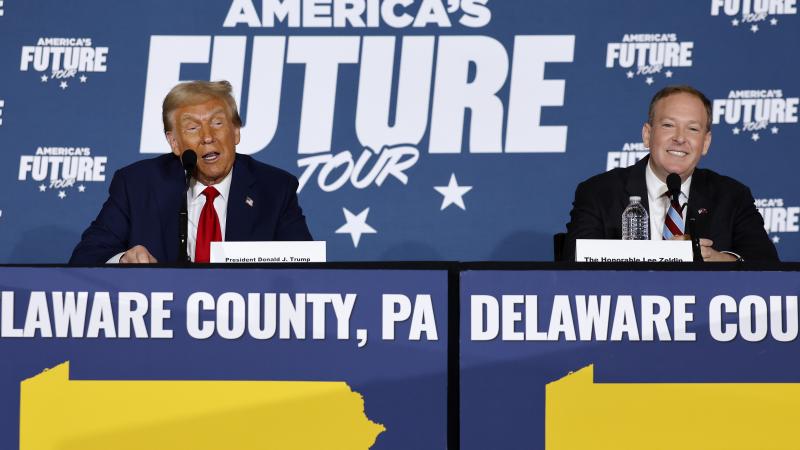CBS anti-plastics report shows media comfortable forming partnerships with climate activists
Inside Climate News, which whom CBS partnered for the report, is funded by several anti-fossil fuel organizations, including the Rockefeller Brothers Fund, the Rockefeller Family Fund and the Leonardo DiCaprio Foundation.
CBS News recently published a story about plastics recycling, which focused on a Houston facility that failed fire safety inspections and may be storing plastics without proper permits. The story notes that it’s a partnership between Inside Climate News (ICN), a climate activist publication that aims to stop consumption of petroleum energy and products. The segment was authored by an ICN reporter. While the article notes this partnership, it provides no mention of ICN’s funding or political agenda.
The report documents the facility’s inspection failures and lack of permits, which it then spins into a narrative about how plastics have an overall negative impact and the difficulties in addressing those impacts through recycling. The article cites a study by two anti-fossil fuel groups, Beyond Plastics and the International Pollutants Elimination Network, which found that chemical recycling hasn’t been successful commercially.
“Critics argue that chemical recycling is more of an unproven marketing play so plastic production can keep growing rather than a real fix for a global crisis. They cite, for example, harm across the plastics lifecycle from oil and gas drilling to plastic production to plastic waste in rivers and oceans to micro- and nano-plastics in blood vessels,” the article states.
Funding
Inside Climate News is funded by several anti-fossil fuel organizations, including the Rockefeller Brothers Fund, the Rockefeller Family Fund, the Leonardo DiCaprio Foundation, the Park Foundation, the Wallace Global Fund, and the New York Community Trust. Rockefeller Brothers Fund program director Michael Northrop, sits on the ICN board of directors. According to ICN, Northrup provided the seed grant upon which ICN was founded in 2007.
Combined, the Park Foundation and Rockefeller Brothers Fund had over $1.8 billion in assets according to 2022 tax documents. The Rockefeller Family Fund, New York Community Trust, and Wallace Global Fund raised over $1.6 billion in revenues in the same year.
Since 2021, Beyond Plastics, which co-produced the study the CBS News article cites, received at least $200,000 from the Rockefeller Brothers Fund.
Climate activist foundations and nonprofit organizations are coordinating extensively with media outlets to promote a transition away from fossil fuels, which includes demonizing the oil and gas industry and promoting wind and solar as adequate alternatives. While some of the funding goes directly to media outlets, such as the $8 million the Associated Press received in 2022, some it goes to groups like the Society for Environmental Journalists (SEJ) and Covering Climate Now, which boasts of over 500 media partners reaching an audience of over 2 billion people.
Ironically, the Rockefeller Brothers Fund, whose wealth was built on a near monopoly of petroleum production during the turn of the 20th Century, has directed hundreds of thousands of dollars to Inside Climate News' operations.
The SEJ, like Covering Climate Now, encourages reporters writing about climate and energy issues to refrain from interviewing sources who might challenge the “climate crisis” narrative or speak favorably of fossil fuels. The resume of James Bruggers, the ICN reporter who wrote the CBS News report, notes he is a former board member of SEJ and former vice president.
No perfect material
Patrick Krieger, vice president of sustainability at the Plastics Industry Association, a plastics industry group, told Just the News that the anti-plastics conversation doesn’t often consider the impacts of substitution. He said he doesn’t discount concerns about the impacts of plastics, but every material has its positives and negatives.
“There's no perfect material. They're all tradeoffs. And so recognizing what all of those tradeoffs are is really, really important in having at least a full scope of making a cost-benefit analysis as a consumer,” Krieger said.
He pointed to a study by the National Association for PET Container Resources (NAPCOR), which found that plastic bottles, compared with aluminum cans and glass bottles, are more sustainable by several markers, including greenhouse gas emissions, expended energy, and water consumption. A study this year published in Environmental Science and Technology found that, in most cases, plastic alternatives increase greenhouse gas emissions.
“Furthermore, in some applications, such as food packaging, no suitable alternatives to plastics exist. These results demonstrate that care must be taken when formulating policies or interventions to reduce plastic use so that we do not inadvertently drive a shift to nonplastic alternatives with higher GHG emissions,” the authors concluded.
Krieger explained that getting rid of plastics doesn’t make consumption go to zero. So, the question is, what are the outcomes of the alternatives.
“People still want to live their lives. They still want to be able to have access to the products and the conveniences that they currently have. And that's perfectly normal and natural to expect. But if you're not using plastics, in many cases, those alternatives can be somewhere between 35% to 700% higher in the amount of emissions that are used in those applications. So it's often really misleading when we just talk about one part of that kind of puzzle,” Krieger said.
One of the strengths of plastics, he explained, is they’re lightweight. So, a switch to glass in packaging, for example, means more energy used in shipping, even before accounting for increased energy in producing the glass. Another example is the use of plastics in cars, which reduces their weight and the amount of energy they consume. Over 50% of the material in vehicles in the U.S. is plastic.
“You’re making the car more efficient,” he said.
The CBS News article didn’t explore questions about the alternatives to plastics. Just the News reached out to CBS News to ask about how partnering with climate activists to produce articles might compromise the outlet’s objectivity, as well as the ethics of not disclosing the funding sources supporting those activists. The outlet didn’t respond.
The Facts Inside Our Reporter's Notebook
Links
- failed fire safety inspections
- Inside Climate News
- cites a study
- Rockefeller Brothers Fund
- Rockefeller Family Fund
- Leonardo DiCaprio Foundation
- Park Foundation
- Wallace Global Fund
- New York Community Trust
- Michael Northrop
- According to ICN
- Beyond Plastics
- received at least $200,000
- coordinating extensively with media outlets
- $8 million the Associated Press received in 2022
- Society for Environmental Journalists
- Covering Climate Now
- refrain from interviewing sources
- James Bruggers
- Plastics Industry Association
- study by the National Association for PET Container Resources
- study this year
- material in vehicles in the U.S. is plastic















